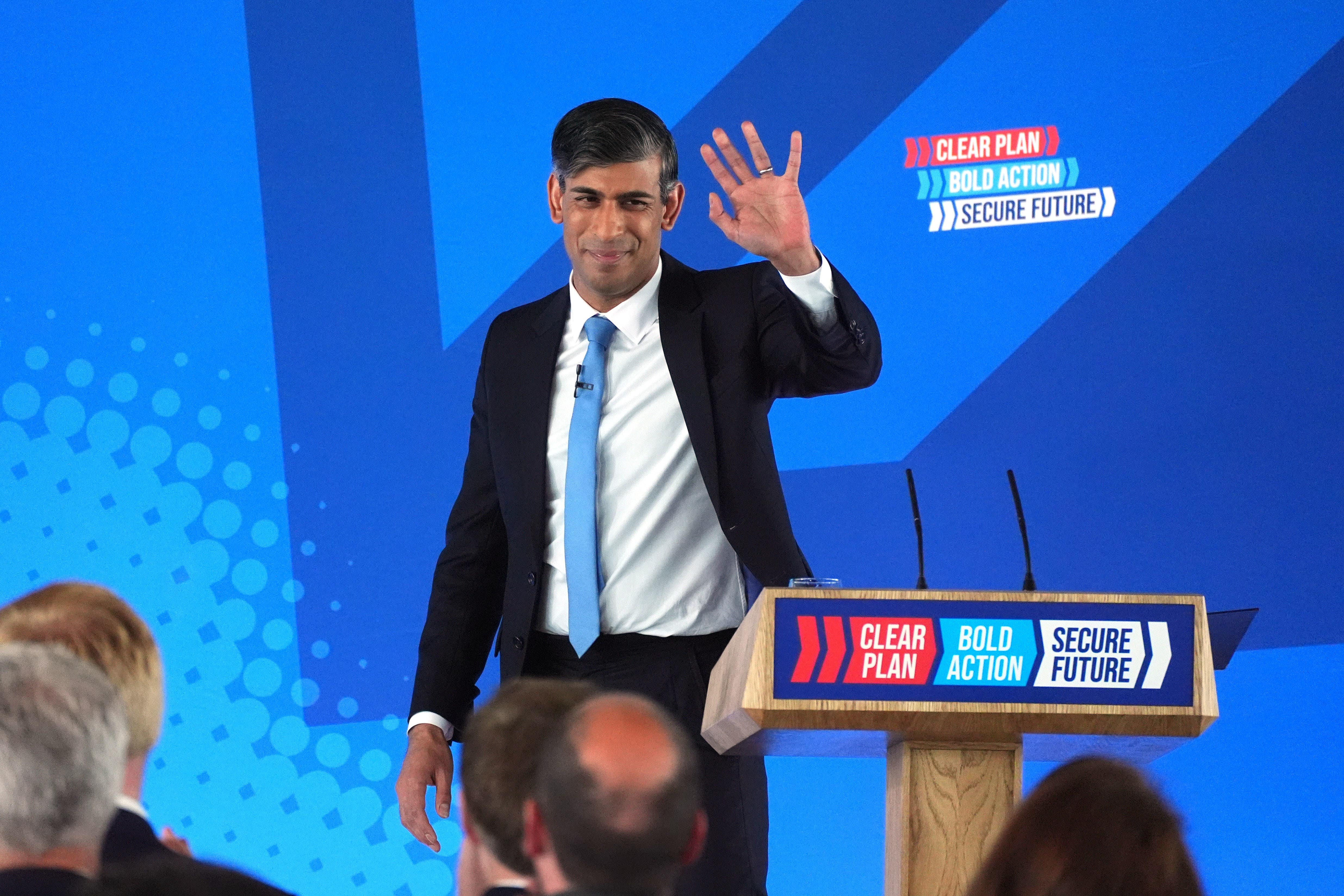
British Prime Minister Rishi Sunak unveiled the Conservative Party's general election manifesto on June 11, 2024, at Silverstone Circuit in Towcester, United Kingdom. The manifesto included several key pledges aimed at winning back voters and addressing various issues.
Sunak announced tax cuts for both employees and the self-employed. He promised to cut National Insurance by 2 pence for employees and eliminate it entirely for the self-employed, affecting around four million people. Additionally, he pledged to abolish stamp duty on houses up to £425,000.
The Conservatives also promised a new and improved Help to Buy scheme for first-time homebuyers. This program would enable buyers with a 5% deposit to purchase properties worth up to 20% of their value. The party claimed that this initiative would help around 180,000 households.
Sunak acknowledged the frustration among voters and admitted that the Conservatives had not gotten everything right. He urged people not to give Labour leader Keir Starmer a 'blank cheque' and emphasized his commitment to making the country a better place to live.
The manifesto also included plans for national service, which would require 18-year-olds either to spend a year in the armed forces or volunteer once a month in civil society. The goal was to create a more cohesive society and address issues of security and community engagement.
Despite these pledges, some critics pointed out that the manifesto lacked significant new ideas and contained measures that had been announced or tried before with mixed results. For instance, the Conservative Party's previous attempts to tackle illegal immigration through a plan to send asylum seekers to Rwanda have faced numerous challenges and criticism.
The overall score for this article is 91.5.





